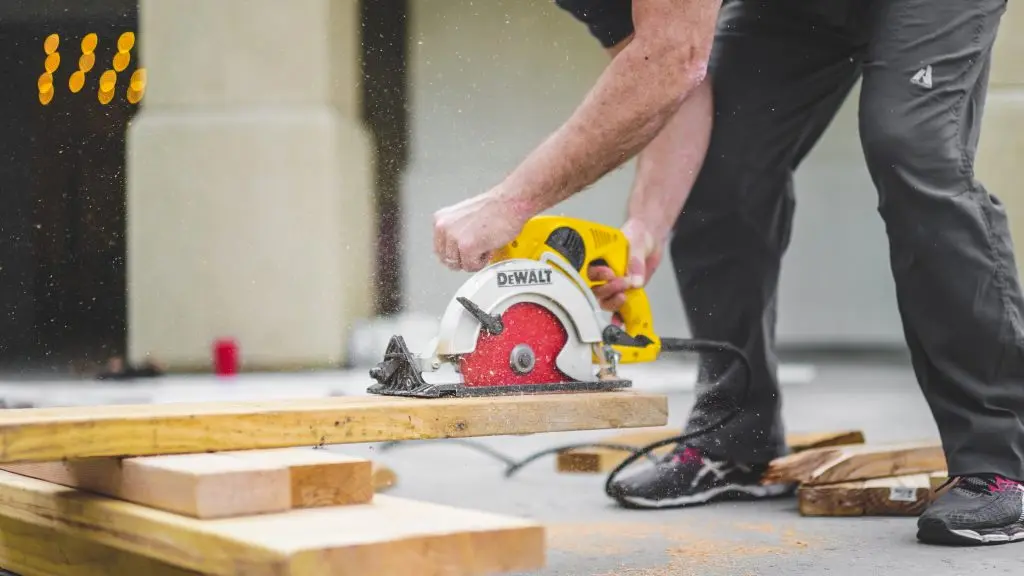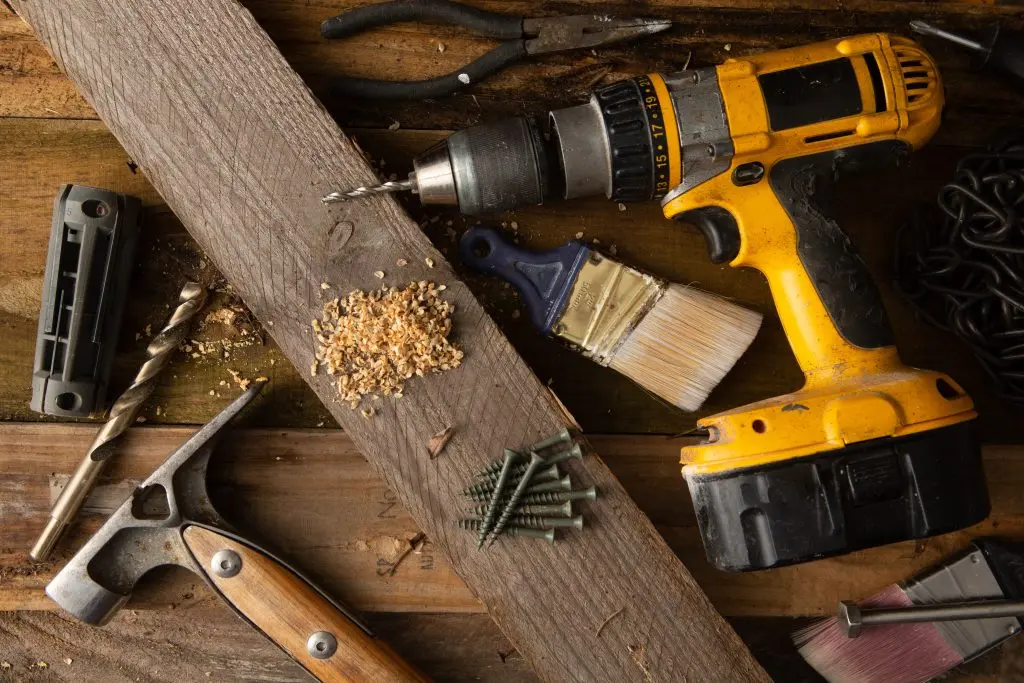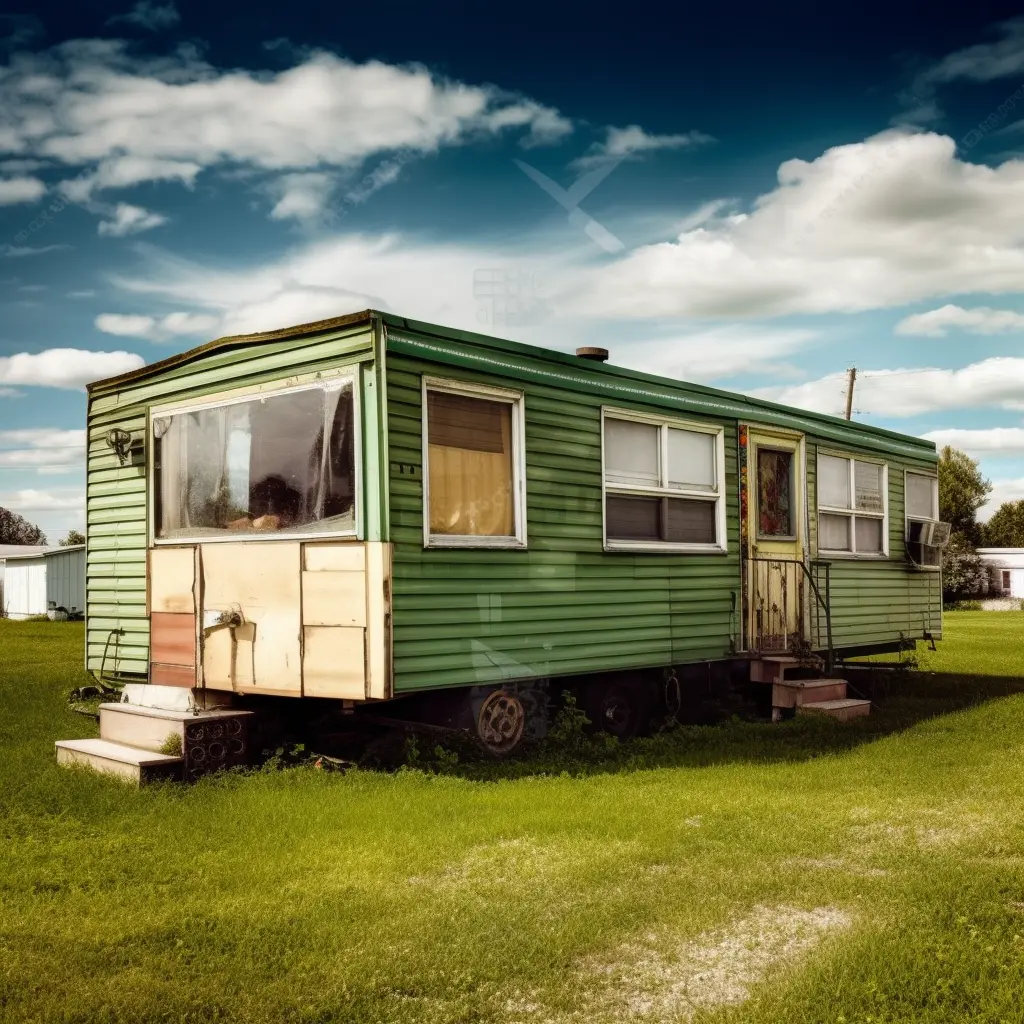Flipping Mobile Homes: A Pocket-Friendly Investment in Real Estate
Hey there, fellow real estate enthusiasts! Ever thought about a unique, budget-friendly investment opportunity that’s not your traditional fixer-upper or rental property? If your mind is buzzing with curiosity, then strap in because we’re about to delve into the world of mobile homes. And not just living in them, but flipping them for a profit!
Mobile Homes: The Unsung Heroes of Real Estate Investments
Picture this: a type of property that costs less to buy, less to repair, and can still turn a decent profit when sold. Sounds too good to be true, right? But believe it or not, this is the reality with mobile homes.
These humble abodes, once seen as the underdogs of real estate, have been gaining popularity amongst savvy investors over the past few years. Mobile homes can be a goldmine of opportunities if you know how to tap into their potential. Imagine being able to get started with a real estate venture that requires less initial capital, offers a quick turnaround, and brings in a higher rate of return – that’s the beauty of mobile home flipping.
Navigating Our Journey
So what exactly is this blog post about? Here, we aim to unwrap the mystery surrounding mobile home flipping. From understanding the mobile home market to a step-by-step guide on how to flip these properties, we’ve got it all covered. We’ll delve into why flipping mobile homes could be a lucrative real estate investment strategy, the risks involved, and how to navigate them. Along the way, we’ll share some amazing success stories to keep you motivated and sprinkle in some pro tips and facts for that extra dash of knowledge.
Knowledge is Power
But remember, while flipping mobile homes can be an exciting journey filled with opportunities, it’s not without its challenges. It’s important to get a grasp of the process, understand the market, be aware of local laws and regulations, and, most importantly, know what you’re getting yourself into.
It’s like baking a cake – sure, you can mix in the ingredients, but knowing the right quantities, understanding the baking time, and of course, having a bit of patience, can be the difference between a perfectly fluffy cake and a kitchen disaster!
With that said, it’s time to roll up our sleeves and delve into the fascinating world of flipping mobile homes. Ready? Let’s dive right in!

What Is Mobile Home Flipping?
So, what exactly does flipping a mobile home entail? Similar to flipping a traditional house, mobile home flipping involves buying a mobile home at a lower price, usually one that needs a bit of TLC, sprucing it up, and then selling it for a profit. Easy, right? Well, just like any investment, it’s crucial to understand the process, the market, and the potential challenges that might come your way.
Now you might be thinking, “Sure, I’ve heard about house flipping. But mobile homes? Isn’t that a relatively new concept?” Not quite.
You see, the idea of mobile home flipping isn’t new. Mobile homes have been around since the 1920s when travel trailers gained popularity. Post World War II, there was a significant boom in the mobile home industry, offering affordable housing solutions to many. However, it wasn’t until more recently that investors started to see the potential in flipping mobile homes as a lucrative real estate venture.
Let’s look at some stats to give you a clearer picture. According to the Manufactured Housing Institute, about 22 million people in the U.S. lived in manufactured homes (another term for mobile homes) as of 2020. The average sales price for a new manufactured home was around $70,600 – substantially lower than the median price of a traditional single-family home, which stood at approximately $284,600 in the same year.
Seeing these numbers, it’s no wonder savvy investors have started to explore this pocket-friendly investment opportunity. By purchasing a mobile home at a relatively low price, adding value through renovations, and selling at a higher price, they’re flipping the script on traditional real estate investments.
Stay tuned as we unpack more about why you should consider flipping mobile homes and how to navigate this potentially profitable real estate venture!
Why Consider Flipping Mobile Homes?
If you’re still on the fence about mobile home flipping, consider this: what if I told you that there’s an opportunity for you to dive into real estate investment without the need for a huge initial capital outlay? What if you could get in on a trend that’s gaining momentum and is ripe with opportunities? That’s right, folks! Mobile home flipping might just be the ticket you’re looking for. Let’s take a closer look at why.
Affordability
Imagine you’re shopping, but instead of buying a high-end brand-name product, you opt for a lesser-known but equally good alternative. You save money, get the same satisfaction, and your wallet breathes a sigh of relief. Now apply this analogy to real estate investment.
A mobile home is like that lesser-known brand. You see, investing in mobile homes typically requires less capital compared to traditional homes. This makes it an attractive venture, especially for first-time investors who are wary of the significant financial commitment that traditional real estate investments usually demand.
High Potential Profit Margins
Picture yourself at an auction. You find a vintage piece of art at a bargain price, you spend a little on restoring it, and then sell it for a hefty profit. The art here is analogous to a mobile home. With some sprucing up and smart renovations, the humble mobile home you bought at a lower price can sell for a significantly higher price. The fact that renovation costs are usually lower than that of traditional homes only adds to the allure.
Faster Turnaround Time
Think of mobile home flipping as a speedboat in the vast ocean of real estate. While traditional house flipping could be more like a sailboat, dependent on numerous factors and typically taking longer, mobile home flipping is your motor-powered speedboat, capable of faster turnaround times. Thanks to generally lower renovation costs and less complex repair work, you can flip and sell a mobile home faster, allowing for quicker returns on your investment.
Growing Market
Remember when e-commerce was just starting and people were skeptical about buying things online? Look where we are now! Similarly, the mobile home market, once overlooked, is now growing steadily. The increasing demand for affordable housing solutions, coupled with the changing perceptions about mobile home living, has set the stage for a burgeoning market.
Ready to join the trend? Let’s learn how to navigate the mobile home market next!

Understanding the Mobile Home Market
Certainly, let’s dive into the details of the mobile home market.
It’s time to talk business! You see, the mobile home market is like an intriguing novel – unique, filled with interesting characteristics, and has a story of its own. To ace the game of mobile home flipping, you need to understand this story and its key players.
An Overview of the Mobile Home Market
Just like classic cars have their enthusiasts, the mobile home market has a dedicated base of potential buyers. These are folks who value affordability and flexibility. The demand for mobile homes is often driven by people looking for budget-friendly housing solutions or those seeking a minimalist lifestyle.
And this demand is growing! According to the Manufactured Housing Institute, shipments of new manufactured homes have seen an upward trend over the past few years. This growing demand, coupled with the opportunity for higher profit margins, makes the mobile home market a hot spot for investors.
The Uniqueness of the Mobile Home Market
Just like a cat isn’t just a small dog, a mobile home isn’t just a smaller traditional home. It’s got its quirks and features that you need to understand. For instance, mobile homes depreciate in value over time, unlike traditional homes which generally appreciate. But don’t let this deter you! This depreciation is exactly what allows you to buy low, renovate, and sell high.
Another unique aspect? Mobile homes can be either ‘personal property’ if they’re not permanently affixed to land, or ‘real property’ if they are. This can affect how you finance and sell them.
Location, Location, Location!
You’ve heard this one before, haven’t you? Just as the value of a beachfront property is significantly influenced by its location, the value and demand for a mobile home are also affected by where it’s located. Factors like the desirability of the mobile home park, its amenities, the location of the park (city outskirts or downtown), and even the lot it occupies within the park play a crucial role.
Know Your Local Regulations
Local regulations regarding mobile homes can vary widely. Some areas may have zoning laws that restrict where mobile homes can be located. Other places might require specific standards for renovation. Being familiar with these laws is crucial to avoiding potential roadblocks and maximizing your return on investment.
Getting a handle on the mobile home market and its intricacies is like mastering the rules of a new board game. Once you’ve got them down, you’re ready to play! So let’s move to the next step – the actual process of flipping a mobile home. Ready to roll the dice?

A Step-by-Step Guide to Flipping Mobile Homes
1. Research and Planning
Think about it like setting off on a road trip. You wouldn’t just hop in your car and start driving, would you? You’d plan your route, check the weather, and maybe even find a few good pit stops along the way. Similarly, the journey of flipping a mobile home begins with some serious research and planning. Here’s why.
Why Planning and Research Are Key
Imagine you’re putting together a puzzle. Having the box cover as a guide makes a world of difference, right? In the world of mobile home flipping, research and planning serve as your box cover. They give you an understanding of the big picture and guide your decisions.
Solid research can provide insights into which mobile homes make for a good investment, what renovations will add value, and how to price the home once it’s ready to sell. Planning, on the other hand, can help you estimate costs, timelines, and potential returns, making sure you stay on track throughout the process.
In essence, research equips you with knowledge, and planning turns that knowledge into a strategic roadmap.
Tools and Resources for Research
Luckily, you’re not alone on this research mission. There are plenty of tools and resources available that can provide valuable insights.
- Local Market Data: Real estate platforms and local government databases often provide information on recent sales, pricing trends, and property specifics. This data can help you understand the local mobile home market and identify profitable opportunities.
- Online Forums and Networks: Platforms like BiggerPockets and local real estate investor networks can provide firsthand information from experienced investors. You can learn from their successes, their mistakes, and their tips on mobile home flipping.
- Real Estate Agents and Park Managers: Local real estate agents familiar with mobile homes and mobile home park managers can be treasure troves of information. They can offer insights into what buyers are looking for, common issues, and local regulations.
- Inspection Services: Before purchasing, consider hiring a professional to inspect the mobile home. They can identify any structural issues, estimate repair costs, and prevent any unpleasant surprises later on.
Armed with solid research and a well-thought-out plan, you’re now ready to take the next step on your mobile home flipping journey. Buckle up, and let’s find that perfect mobile home to flip!
2. Finding the Right Mobile Home
Have you ever been on a treasure hunt, looking for that elusive gold at the end of the rainbow? Finding the right mobile home to flip can feel a lot like that. It’s about identifying potential gems that, with a bit of polish and care, can turn into a profitable investment. Here’s how to go about it.
Identifying Potential Investment Opportunities
Finding the right mobile home to flip starts with keeping an eye out for a few key factors:
- Pricing: Look for homes that are priced lower than other similar homes in the area. This could be because they need some work, the owner needs to sell quickly, or a variety of other reasons. Remember, the lower the purchase price, the higher your potential profit margin.
- Location: A mobile home in a desirable location, like a well-maintained park or an area with good amenities and access to necessities, can fetch a higher price when it’s time to sell.
- Condition: Homes that need a bit of TLC can be a good opportunity. Why? Because you can add significant value through renovations. But be wary of homes with serious structural issues – these can turn into money pits!
Checklist: What to Look Out For
Here’s a handy checklist of things to consider when you’re looking at potential mobile homes to flip:
- Roof Condition: Mobile home roofs are prone to leaks, so check for any signs of water damage or aging.
- Plumbing: Ensure that the plumbing system is in good shape. Look for leaks, test the water pressure, and make sure the water heater is functioning properly.
- Electrical System: Faulty wiring can be a serious issue. Check the electrical system, including the breaker box, outlets, and light switches.
- HVAC System: A functioning heating, ventilation, and air conditioning (HVAC) system is essential for comfort. Ensure the home’s system is in good working condition.
- Windows and Doors: Check for any drafts, leaks, or damage that might affect insulation and security.
- Structural Integrity: Look out for any signs of serious structural damage, like sagging floors or walls, which could indicate expensive repairs.
- Interior: Consider the state of the interior. Things like stained carpets or dated kitchen cabinets can be easily updated to add value.
- Park Rules and Lot Rent: If the home is located in a park, make sure you understand the park’s rules and the lot rent. These can affect your potential buyer’s monthly costs and your ability to sell the home.
Remember, finding the right mobile home is a mix of understanding the market, identifying potential, and knowing what to look out for.
3. Making the Purchase
You’ve done the research, found the perfect mobile home to flip, and now it’s time to secure your treasure. This stage is like check-out time in an online shopping journey, but with a few more steps involved. Let’s walk through the process, financing options, and cost considerations.
The Purchasing Process
Buying a mobile home to flip isn’t quite the same as buying a single-family house. Here’s a simplified version of the steps you might take:
- Negotiation: After you’ve found the perfect mobile home, the next step is to negotiate the price. Remember, the lower the purchase price, the higher your potential profit.
- Paperwork: Once you’ve agreed on a price, it’s time for the paperwork. This might include a bill of sale, title transfer, and any park-related documents. It’s a good idea to work with a real estate attorney or agent familiar with mobile homes to ensure everything is done correctly.
- Payment: After all the paperwork is in order, it’s time to pay the seller and become the official owner of your mobile home!
Financing Options
Unlike traditional homes, mobile homes can sometimes be trickier to finance, especially if they’re classified as personal property. However, don’t fret! There are still plenty of options available:
- Cash: If you have enough capital, you could consider paying for the mobile home outright. This can often simplify the purchasing process and can sometimes give you an upper hand in price negotiations.
- Personal Loans: Some banks and credit unions offer personal loans that can be used to purchase mobile homes. Keep in mind that interest rates for personal loans can sometimes be higher than traditional mortgage loans.
- Chattel Loans: These are loans specifically designed for mobile homes that aren’t permanently affixed to land. They’re typically faster to obtain than traditional mortgages, but they might have higher interest rates.
- Seller Financing: In some cases, the seller might be willing to finance the sale. This means that you’d make payments directly to the seller over time, instead of paying the full price upfront.
Cost Considerations
In addition to the purchase price, don’t forget to factor in other costs related to buying a mobile home:
- Inspection Costs: An inspection can help identify potential issues with the mobile home, saving you from expensive surprises down the road.
- Renovation Costs: Remember to budget for the cost of any renovations or repairs the home might need.
- Park Fees: If the mobile home is located in a park, you’ll likely need to pay lot rent. You might also be responsible for utilities and other fees.
- Closing Costs: Just like with traditional homes, buying a mobile home can come with various closing costs. These might include title transfer fees, sales tax, and legal fees.
Remember, making a smart purchase is a crucial step on the path to a successful flip. It’s like finding the perfect ingredients for your recipe – get this right, and you’re halfway there! Ready for the next step? Let’s get into renovating your mobile home!
4. Renovating the Mobile Home
It’s makeover time! Imagine a dramatic before-and-after reveal on a home improvement show. That’s what we’re going for here. But instead of simply making it look pretty, our goal is to maximize the value of your mobile home. Let’s walk through some steps and tips to achieve this.
Steps for Renovation
Here’s a typical step-by-step guide for your renovation journey:
- Assess the Mobile Home: Start with a thorough assessment of your mobile home. Make a list of necessary repairs and possible upgrades.
- Plan Your Renovation: Prioritize your repairs and upgrades based on your budget and the potential return on investment (ROI). Make a timeline for the renovation process.
- Hire Professionals: Unless you’re a skilled DIY-er, you might need to hire professionals for certain jobs like plumbing, electrical work, and major structural repairs.
- Start Renovating: Start with the necessary repairs first. Then move on to the upgrades. Remember, the goal is to make the home appealing to potential buyers.
- Inspect and Finalize: Once all the work is done, inspect everything carefully. Make sure all renovations meet local regulations and park rules.
Tips to Maximize Value
While renovating, keep these tips in mind to maximize the value of your mobile home:
- Kitchen and Bathroom Upgrades: These rooms often see the highest return on investment. Simple upgrades like new cabinets, updated appliances, or new fixtures can make a big difference.
- Curb Appeal: First impressions count! Enhancements to the exterior of the home, like a fresh coat of paint, updated skirting, or a tidy yard can increase its appeal.
- Energy Efficiency: Consider adding energy-efficient upgrades like double-paned windows or improved insulation. These can be selling points for potential buyers.
- Neutral Decor: When it comes to choosing paint colors and finishes, stick with neutral options. This allows potential buyers to envision their own belongings in the space.
- Quality Over Luxury: Remember, mobile homes attract buyers looking for affordability. So, focus on quality upgrades rather than luxury ones. You don’t need to install a marble countertop, but a well-installed laminate one can do wonders!
- Comply with Regulations: Ensure all renovations comply with local regulations and park rules. This will help avoid any issues when selling the home.
So, put on your creative cap, roll up your sleeves, and let’s transform this mobile home into a desirable, valuable asset! Ready to take the next step? Let’s explore the world of selling your newly renovated mobile home.
5. Selling the Mobile Home
This is the moment of truth, where all your planning, research, and hard work come to fruition. You’ve transformed a potential-laden mobile home into an enticing property. Now, it’s time to find the right buyer, price it correctly, and seal the deal. Let’s find out how.
Pricing and Marketing Your Mobile Home
When it comes to selling, pricing is paramount. Price it too high, and it might sit unsold. Price it too low, and you’ll leave money on the table.
Here’s how to hit the sweet spot:
- Research: Look at comparable mobile homes in the area that have recently sold. This gives you an idea of what buyers are willing to pay.
- Consider Costs: Factor in your total investment, including the purchase price, renovation costs, and any fees or charges you’ve incurred.
- Assess Value: Evaluate the value you’ve added through renovations. An updated kitchen, a fresh coat of paint, or a revamped bathroom can all add to the value of your home.
Next up, marketing. Remember, even the best product won’t sell if nobody knows about it!
Here’s how to get the word out:
- Online Listings: Use online real estate platforms to reach a wide audience. Include high-quality photos and a detailed, engaging description of your mobile home.
- Local Advertising: Don’t forget local advertising channels. These could include local newspapers, community bulletin boards, and even word-of-mouth.
- Open House: Consider hosting an open house. This allows potential buyers to see the home in person and envision themselves living there.
Finalizing the Sale and Potential Profits
Once you’ve found a buyer and agreed on a price, it’s time to finalize the sale. This typically involves signing a contract, transferring the title, and arranging for payment. Again, working with a real estate attorney or agent familiar with mobile homes can help ensure everything goes smoothly.
As for potential profits? They can be considerable! Remember, the appeal of flipping mobile homes lies in their affordability and the potential for high ROI. By buying low, adding value through renovations, and selling high, you stand to make a significant profit. Just remember to factor in all your costs when calculating your final return.
And there you have it! From finding the right mobile home to transforming it and sealing the deal, you’ve just navigated the exciting journey of flipping mobile homes. Whether you’re an aspiring real estate mogul or simply looking for a new investment opportunity, flipping mobile homes can be a rewarding adventure.

Risks and Challenges in Flipping Mobile Homes
While flipping mobile homes can be a profitable venture, it’s not without its share of potential risks and challenges. Just like rock climbing, it’s thrilling, but you’ll want to be sure your safety ropes are firmly in place. Let’s explore some common pitfalls and how to sidestep them.
Potential Pitfalls in Mobile Home Flipping
- Unexpected Repair Costs: Sometimes, a mobile home might require more extensive and costly repairs than initially anticipated. This can eat into your profits.
- Regulatory Challenges: Mobile homes are subject to a variety of regulations, both at the local level and within mobile home parks. Overlooking these can lead to hefty fines or even legal troubles.
- Market Volatility: Like any real estate venture, the mobile home market can fluctuate. You might find it difficult to sell your flipped home at a profitable price, particularly in a slow market.
- Financing Issues: Traditional lenders often view mobile homes as risky investments, which can make financing a flip more challenging.
- Tenant Problems: If you’re considering renting out your mobile home, keep in mind that dealing with tenants can sometimes present challenges.
Mitigating the Risks
While these risks can seem daunting, remember that forewarned is forearmed. Here are some ways to mitigate these risks:
- Thorough Inspections: Before purchasing, conduct a thorough inspection of the mobile home to identify potential repair issues. If possible, bring in a professional who specializes in mobile homes.
- Understand the Regulations: Familiarize yourself with the local regulations and any park rules that apply to your mobile home. This can help avoid legal complications.
- Do Your Homework: Research the market extensively before buying and regularly during the flipping process. This can help you stay ahead of market trends and make informed decisions.
- Seek Alternative Financing: If traditional financing isn’t an option, consider other avenues like personal loans, chattel loans, or seller financing.
- Effective Tenant Management: If you decide to rent out the home, screen tenants carefully, set clear expectations, and manage issues promptly.
The risks of flipping mobile homes, like most investments, are real. But with careful planning, due diligence, and risk management, you can minimize these potential pitfalls and put yourself on a path to success. Remember, even the rockiest roads can lead to the highest peaks. So buckle up, keep these tips in mind, and start your flipping journey with confidence! Ready to tackle the final piece of the puzzle? Let’s wrap things up!

Conclusion on Flipping Mobile Homes
In a nutshell, flipping mobile homes can be an adventurous and potentially profitable venture for real estate investors and novices alike. It’s a journey that begins with understanding the potential of mobile homes, involves strategic planning, careful selection, smart renovations, and effective marketing, and ends with a successful sale.
But like any investment, it’s not without its risks. From unexpected repair costs to market volatility, the road can sometimes be bumpy. But armed with knowledge, a plan, and the right mindset, you can navigate these challenges and make your mobile home-flipping venture a success.
Remember, flipping mobile homes isn’t just about making a profit – it’s about creating homes where memories can be made. So whether you’re an aspiring real estate mogul or looking for a new investment opportunity, flipping mobile homes can be a rewarding endeavor.
FAQs on Flipping Mobile Homes
1. What is mobile home flipping?
Mobile home flipping involves buying a mobile home at a low cost, making necessary repairs and improvements, and then selling it at a higher price for profit.
2. Why should I consider flipping mobile homes?
Flipping mobile homes can be a cost-effective entry point into the real estate market. They are generally more affordable than traditional homes, and the potential for high return on investment is significant.
3. Where can I find mobile homes to flip?
Mobile homes can be found through various sources including online real estate platforms, local newspapers, mobile home parks, real estate auctions, and through networking in local real estate communities.
4. What should I look for when buying a mobile home to flip?
Look for mobile homes in good locations that need minor to moderate renovations. Avoid homes with severe structural issues or those that require costly repairs unless you’re experienced in major home renovations.
5. How much does it cost to flip a mobile home?
The cost of flipping a mobile home can vary widely depending on the purchase price, the extent of renovations required, and selling costs. Always factor in all these costs when planning your flip.
6. What kind of renovations add the most value to a mobile home?
Typically, updates to the kitchen and bathroom, fresh paint, new flooring, and enhancing curb appeal can add significant value. Energy-efficient upgrades can also be appealing to potential buyers.
7. What are the risks involved in flipping mobile homes?
Risks include unexpected repair costs, regulatory challenges, market volatility, financing issues, and potential difficulties with tenants if you choose to rent before selling.
8. How can I mitigate these risks?
To mitigate risks, conduct thorough inspections and research, understand local regulations, keep an eye on market trends, explore various financing options, and manage tenants effectively.
9. Can I flip a mobile home while living in it?
Yes, this is known as a live-in flip. It can be a good way to save on living expenses while you renovate the home, but it does require living in a construction zone.
10. How long does it take to flip a mobile home?
The timeline for a flip can vary based on a number of factors, including the extent of the necessary renovations and the local real estate market. Generally, a flip might take anywhere from a few months to over a year.
Remember, flipping mobile homes, like any investment, requires careful research and planning. But with knowledge and determination, it can be a profitable and rewarding venture. Good luck with your flipping journey!







